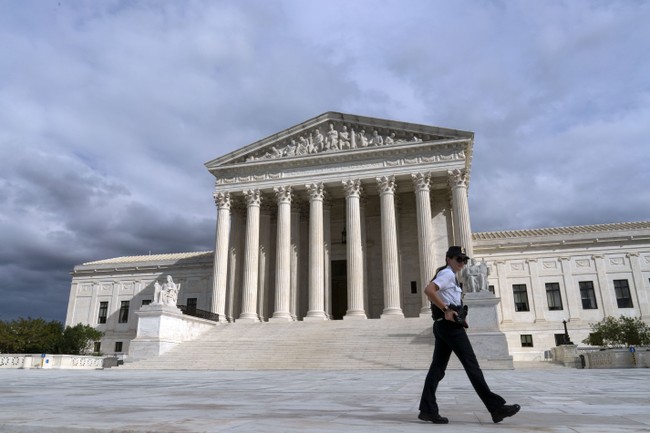
The Supreme Court on Friday directed parties in the ongoing Louisiana redistricting case to present briefs addressing the constitutionality of creating minority-majority Congressional districts. In a tersely worded order, the Court ordered participants in Louisiana vs. Callais “to file supplemental briefs addressing the following question raised on pages 36—38 of the Brief for Appellees: Whether the State’s intentional creation of a second majority-minority congressional district violates the Fourteenth or Fifteenth Amendments to the U. S. Constitution.”
Louisiana vs. Callais was argued in the last term, but no decision was reached. It concerns creating a second majority-Black congressional district in that state. The Supreme Court heard arguments in the case in March and was expected to rule by the end of June. Instead of a ruling, the Court relisted the case for another round of arguments on June 27, and then on Friday, placed the focus of the new argument on the legality of racial gerrymandering.
RELATED:
Racial Gerrymanders Had a Bad Day at the Supreme Court – RedState
The requirement for additional majority-Black districts deprived the GOP of at least one seat in Louisiana, as well as one in Alabama. A decision declaring racial gerrymandering illegal will open the door to GOP court challenges across the nation and slam the door on Democrat lawsuits seeking to overturn districts because of perceived racial imbalance.
The stakes are high. The left knows if racial gerrymanders go away, their ability to disrupt elections is over.
Rick Hasen, an election law expert at UCLA, called the stakes enormous, writing in a blog post that the court seems to be asking whether the section of the Voting Rights Act at issue “violates a colorblind understanding of the Constitution.”
The action follows a major ruling by the court in 2013 in a case involving Alabama’s Shelby County that invalidated another core section of the Voting Rights Act that determined which states and locales with a history of racial discrimination need federal approval for voting rule changes affecting Black people and other minorities.
“This Court is more conservative than the Court that in 2013 struck down the other main pillar of the Voting Rights Act in the Shelby County case,” Hasen wrote. “This is a big, and dangerous, step toward knocking down the second pillar.”
I cannot stress to you enough how earth-shattering it would be for the Supreme Court to strike down Section 2 of the Voting Rights Act.
The electoral cornerstone of the Postwar Liberal Consensus would be gone overnight, and with it, the Democratic Party’s ability to contest the… pic.twitter.com/sRKpr85UZR
— Christian Heiens 🏛 (@ChristianHeiens) August 2, 2025
The nation seems to have begun a march back from the racial and ethnic Balkanization that seemed inevitable only a few years ago. The idea that Black or Hispanic voters can only vote for a candidate of their choice if the candidate possesses the same skin color or ethnic heritage is demeaning to anyone hearing it. If the Supreme Court demolishes the Voting Rights Act as a tool for racial division, the same way it did for race-based college admissions, Chief Justice Roberts could go down as one of the most important Chief Justices of the past century.
DEI is an insidious Marxist project that has ruined many American institutions by pitting races, ethnicities, and the sexes against each other in a Hunger Games-like scramble for advantage. At RedState, we’ve been fighting against this evil for years, as we believe that unity, not diversity, is America’s strength. Join RedState VIP and help keep us in that fight. Use promo code FIGHT to get 60% off your membership.
















